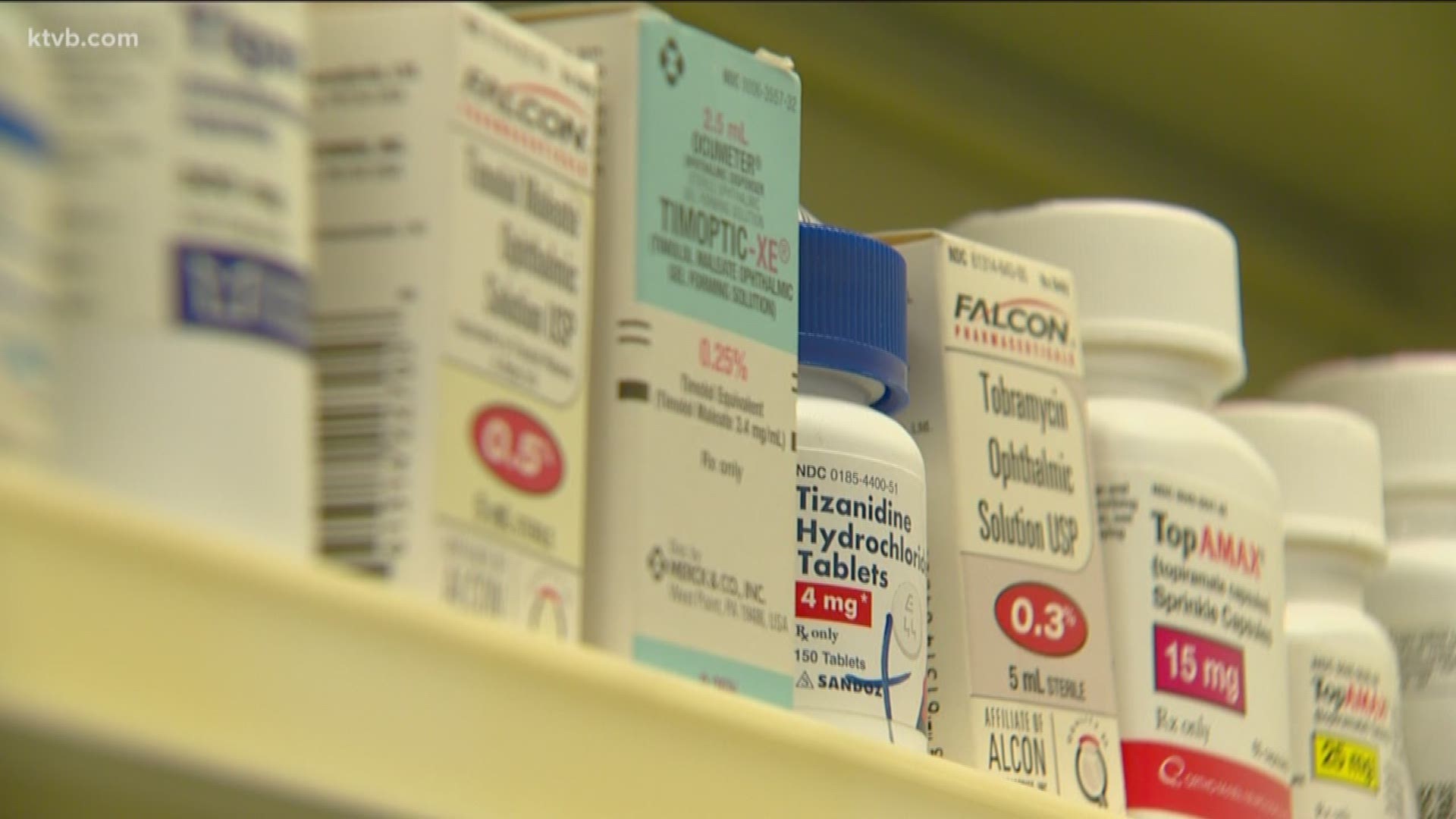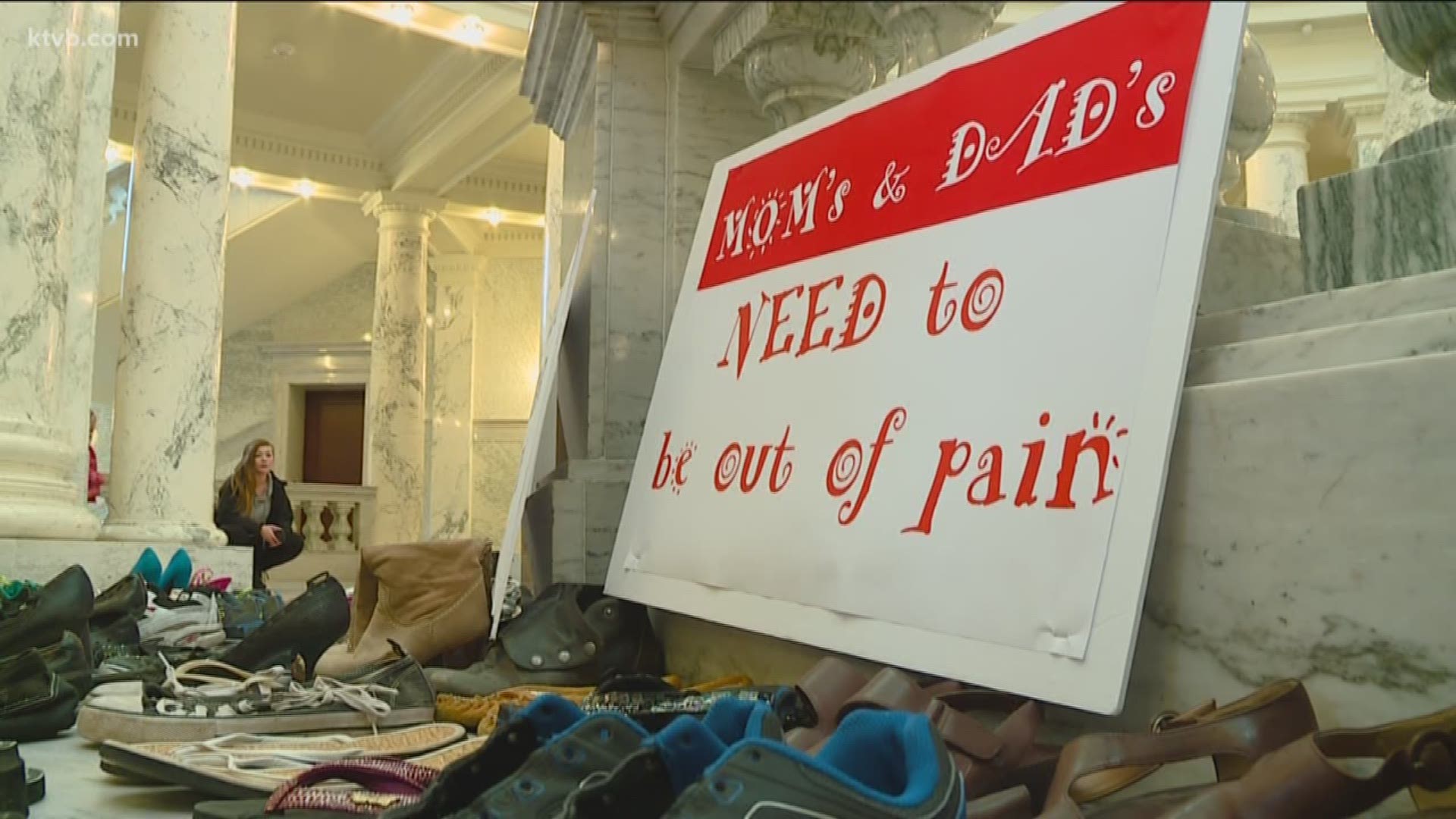BOISE - As people in Idaho and across the nation become more aware of an epidemic of opioid overdoses, the nation's top doctor is urging more people to carry the antidote Naloxone, also known under the brand name Narcan, in case of an overdose.
Surgeon General Dr. Jerome Adams made this announcement Thursday.
But as health officials attempt to curb opioid overdoses and addiction, those who suffer from chronic pain and say they take painkillers responsibly, as prescribed, say they are being punished.
"I have CPRS which is complex regional pain syndrome and it is on the pain scale as above childbirth, and so it’s a terrible burning situation that came about because of some injuries I have had," said Carlene Hansen of Boise.
That's just one disease of 22 others that Hansen suffers from.
"I have been on pain medication for five or six years but I would also add that I have never had a problem taking them as prescribed, and that's really important to me," Hansen said.
The pain medication Hansen takes is the kind health officials have been cracking down on in recent years after learning how addictive and dangerous opioids can potentially be.
As a result, Hansen said in some instances she has been treated like a drug addict and has had trouble refilling her prescriptions at pharmacies, which only carry a limited supply.
"I feel like I'm getting penalized and some of the medication is getting harder to get for myself," Hansen said.
Thirty-eight people gathered at the Idaho State Capitol building Saturday morning for a rally titled "Don't Punish Pain."
Video link for mobile users: 'Don't Punish Pain' rally
"There still need to be protections - we agree with that. We just need to make sure that patients can also get the care that they need so they can live in dignity and have what quality of life that they can have," said Sara Elliott, rally coordinator.
Elliott said that in addition to the 38 who were at the statehouse for the rally, 111 people watched on a live stream. Shoes placed on the ground inside the statehouse symbolized people who wanted to attend the rally, but could not because of disabilities and pain conditions.
"We're at a pretty tricky junction right now because chronic pain is real and there truly are individuals that need relief from chronic pain and several of those individuals are using opioids," said Rosie Andueza with the Idaho Department of Health and Welfare.
Andueza said there is a place for opioids at the table but does admit some doctors are cutting back on prescribing practices.
"I too have heard that some people are challenged trying to find a doctor who will prescribe opioids and by no means do we want to send the message that there is not a place for opioids at the table, we just want to make sure that it's safe," Andueza said.
While health officials across the country work to find a solution that works for people who have a legitimate medical need for painkillers, while curbing overdoses, its recommended to keep the antidote Narcan handy for anyone taking opioids.
"When someone is overdosing, if they are administered a dose of Narcan it will actually stop the overdose in its tracks," Andueza said.


